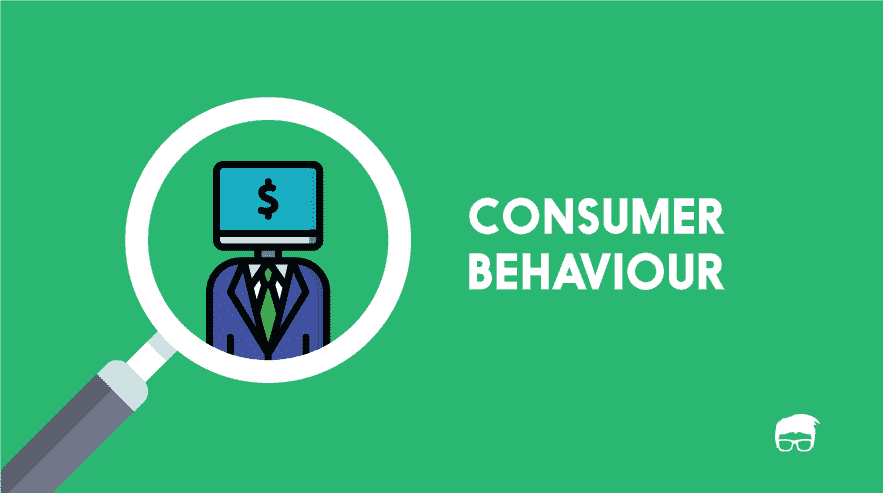
The world of commerce revolves around understanding one fundamental aspect: consumer behaviour. For Bachelor of Business Administration (BBA) students, grasping this complex concept is crucial for a successful career in business. This blog post dives into the fascinating world of consumer psychology, unpacking the key factors that influence how individuals make purchasing decisions.
Consumer Behaviour: The Bedrock of Business
Consumer behaviour refers to the study of how individuals, groups, or organisations select, purchase, use, and dispose of products, services, ideas, or experiences to satisfy their needs and wants. It delves into the motivations behind these actions, providing valuable insights into the marketplace.
Understanding consumer behaviour is a cornerstone of marketing strategies, product development, and overall business success.
BBA Students: Studying the Secrets of the Consumer Mind

Students of the Bachelor of Business Administration should know understanding consumer behaviour is like wielding a magic wand in the business world. It empowers them to:
- Craft Compelling Marketing Strategies: By comprehending how consumers perceive products, what motivates them, and how they make decisions, BBA graduates can create targeted marketing campaigns that resonate with specific audiences.
- Develop Winning Products: Identifying consumer needs and wants allows businesses to design and develop products that address those desires. This knowledge ensures products aren’t just manufactured, but truly craved by the target market.
- Boost Customer Satisfaction: Understanding the factors that lead to customer dissatisfaction empowers businesses to implement strategies that enhance customer experience and foster loyalty.
The Consumer Behaviour Landscape: A Multifaceted Approach
Consumer behaviour is a complex phenomenon influenced by a multitude of factors. BBA students must be adept at navigating this multifaceted landscape. Here, we explore the three major categories that shape consumer decision-making:
- Economic Determinants: Economic factors such as personal income, family income, credit availability, and standard of living significantly impact buying behaviour. Students of Bachelor of Business Administration with a good grasp of economic principles can analyse how these factors influence consumer choices.
For instance, consider a recent graduate with limited disposable income. They’re more likely to prioritise affordability when purchasing a phone, opting for a budget-friendly option compared to someone with a higher income who might prioritise features and brand reputation.
- Psychological Determinants: Our internal world plays a powerful role in shaping how we interact with the marketplace. Psychological factors like motivation, perception, learning, attitudes, and personality all influence consumer behaviour. We encourage business students to understand these psychological concepts and leverage them to create marketing strategies that resonate with consumers on an emotional level.
Take a fitness tracker, for example. Understanding people’s motivations for getting healthy (e.g., improve appearance, boost energy levels) allows marketers to craft campaigns that tap into those desires, positioning the tracker as a tool to achieve those goals.
- Sociological Determinants: We are social creatures and the groups we belong to shape our behaviour. Sociological determinants like family, reference groups, social class, and culture all influence consumer decisions. Understanding these influences empowers BBA graduates to tailor their business strategies to resonate with specific social groups.
For instance, a company marketing organic food might target families with young children, appealing to parents’ desire to provide healthy options for their kids.
The Consumer Decision-Making Process: A Step-by-Step Guide
Consumer decision-making is not a random act. In the Bachelor of Business Administration program, we offer valuable insights and help students understand the typical steps consumers take when making a purchase:
- Problem Recognition: The journey begins when a consumer recognises a need or want that triggers a desire to seek a solution. This could be triggered by internal cues (hunger) or external stimuli (advertising).
- Information Search: Once a need is identified, consumers gather information to evaluate potential solutions. This information can come from internal sources (past experiences, knowledge) or external sources (online reviews, recommendations from friends).
- Alternatives Evaluation: Armed with information, consumers compare different options based on established criteria like price, features, brand reputation, and product reviews. Effective marketing strategies by BBA graduates should highlight why their product stands out from the competition.
- Purchase Decision: After careful consideration, consumers choose the product that best aligns with their needs, preferences, and budget.
- Post-Purchase Evaluation: The decision-making process doesn’t end with the purchase. Consumers assess their satisfaction with the product and the overall purchasing experience. Positive experiences lead to brand loyalty and repeat business, while negative experiences can result in customer churn.
Understanding Different Consumer Types: A Strategic Advantage
Not all consumers are created equal. BBA students who can identify different consumer types can develop targeted strategies to reach each segment effectively. Here are some common consumer classifications:
- Buying Frequency: Seasonal consumers purchase products based on the time of year, like winter coats in cold weather. Need-based consumers buy products when they need them, such as replacing a broken light bulb.
Following up on the various consumer classifications based on buying frequency, we can explore two more:
- Impulse Buyers: These consumers make unplanned purchases driven by emotions or strategic product placement. Eye-catching displays near checkouts, like candy or magazines, often target impulse buyers. Understanding this behaviour allows businesses to strategically position products to capture these unplanned purchases.
- Goal-Oriented Consumers: Consumers can be classified based on their buying goals. Personal consumers purchase products for individual or household use, like groceries or clothes. Organizational consumers, on the other hand, buy products for businesses or organizations, such as office supplies or raw materials. BBA graduates who can distinguish between these goal types can tailor their marketing messages accordingly.
The Power of Perception: Shaping Consumer Behaviour

Perception is how consumers interpret information through their senses. It plays a crucial role in consumer behaviour. BBA students who understand the psychology of perception can leverage it to influence buying decisions. Marketers use various elements like visuals, sounds, and branding to shape consumer perception and create a positive association with their products.
Here’s an example: Imagine a commercial for a new perfume. The visuals might showcase a glamorous model in a luxurious setting, while the music evokes feelings of confidence and sophistication. These elements all contribute to the perception of the perfume, influencing how consumers view the product.
Learning and Consumer Behaviour: Building Brand Loyalty
Our experiences shape how we interact with the world around us. Learning plays a significant role in consumer behaviour. The learning cycle involves:
- a drive (need or want),
- a cue (stimulus like an advertisement),
- a response (purchase decision), and
- reinforcement (satisfaction or dissatisfaction).
Positive reinforcement, such as a satisfying experience with a product, strengthens a response, leading to brand loyalty or habit formation.
Understanding this cycle empowers BBA graduates to develop marketing strategies that create positive experiences for consumers. For instance, free samples or trial periods can act as cues, while a positive product experience serves as reinforcement, potentially leading to brand loyalty.
Attitudes: A Compass for Consumer Decisions
Attitudes are pre-dispositions to behave in a specific way towards products, brands, or experiences. They are shaped by past experiences, social interactions, and cultural influences. Attitudes can be positive, negative, or neutral.
Marketing strategies devised by BBA graduates should aim to achieve one of three goals concerning consumer attitudes:
- Confirmation: Reinforce existing positive attitudes towards a brand.
- Change: Shift negative attitudes into positive ones through persuasive marketing messages.
- Creation: Develop positive attitudes towards a new product or brand through strategic communication.
Personality and Consumer Behaviour: Understanding Individual Differences

People have distinct personalities, and these differences influence buying behaviour. Understanding the link between personality and consumer behaviour is crucial for BBA students. Marketers can leverage psychographic segmentation (which groups consumers based on personality traits) to target specific audiences with relevant products and messaging.
For example, someone with a high extroversion score might be more receptive to social media marketing campaigns with interactive elements, while someone who scores high on agreeableness might be more swayed by messages that emphasise social responsibility or ethical sourcing.
The Evolving Consumer Landscape: Embracing the Digital Age
The digital age has revolutionised consumer behaviour. The rise of e-commerce platforms, social media influence, and access to real-time information have all significantly impacted how consumers interact with brands and make purchasing decisions. BBA students who stay abreast of these evolving trends will be well-equipped to navigate the dynamic world of consumer behaviour.
Conclusion
Understanding consumer behaviour is an essential skill for any aspiring business professional. For BBA students, it’s the key to unlocking a successful career.
By delving into the fascinating world of consumer psychology, BBA graduates gain the knowledge to create targeted marketing strategies, develop winning products, and foster long-lasting customer relationships. This knowledge empowers them to become integral parts of businesses that thrive in the ever-evolving marketplace.




